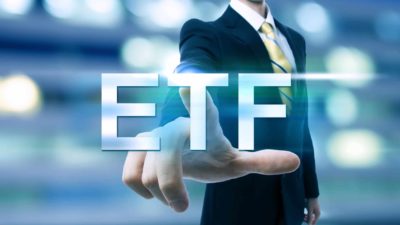A new exchange-traded fund (EFT) is listing on the ASX next week, promising to avoid over-investing in the big technology giants.
BetaShares S&P 500 Equal Weight ETF (ASX: QUS) will start trading on Friday 18 December.
There are many ETFs tracking the S&P 500 Index (INDEXSP: .INX) but the distinguishing feature of this fund is that it will invest in equal portions in each of the 500 companies.
In fact, there already is an index that represents the concept – S&P 500 Equal Weight Index (INDEXNYSEGIS: SPXEW).
The need has arisen because this year big tech has hijacked the value of the index.
The Motley Fool reported last month that FAANGM stocks – Facebook Inc (NASDAQ: FB), Amazon.com Inc (NASDAQ: AMZN), Apple Inc (NASDAQ: AAPL), Netflix Inc (NASDAQ: NFLX), Alphabet Inc (NASDAQ: GOOGL) and Microsoft Corporation (NASDAQ: MSFT) – now make up 25% of the total market capitalisation of the S&P 500.
"We think that the need to diversify broad US exposure is more important than ever," a BetaShares spokesperson told The Motley Fool.
"The equal weight approach reduces the risk of the portfolio being heavily exposed to a small number of 'mega cap' companies, and avoids the susceptibility of market-cap weighting approaches to occasionally become overly concentrated in large stocks that have enjoyed strong price momentum for some time, and so at increasing risk of an eventual performance reversal if their valuations get too extreme."
The ticker code QUS is currently used by BetaShares FTSE RAFI U.S. 1000 ETF (ASX: QUS). But after the close of trade on 17 December, it will start afresh with the new approach.
'Equal weight' has actually outperformed in the long-run
BetaShares is selling the new ETF as a good long-term investment by showing that an equal-weight S&P 500 actually outperformed the standard S&P 500 over the years.
"In the almost 50 years from December 1970 to October 2020, the S&P 500 Equal-weight index returned 12.1% p.a. compared with 10.6% p.a. for the benchmark S&P 500 Index," said the BetaShares spokesperson.
"One reason for this outperformance is that an equal-weight approach provides greater exposure to smaller cap stocks, which on average tend to offer the greatest growth potential."
The change in investment philosophy is also coming with a bonus – a reduction in management fees. The current BetaShares FTSE RAFI US 1000 ETF charges 0.4% per annum while the new fund will slug 0.29%.
This is not the only ETF that BetaShares is resetting. Wednesday 16 December will see the BetaShares Diversified High Growth ETF (ASX: DHHF) change into BetaShares Diversified All Growth ETF (ASX: DHHF).
The "all-growth" label for that new fund has been controversial, with BetaShares admitting many companies that are more than 100 years old are in the portfolio.









